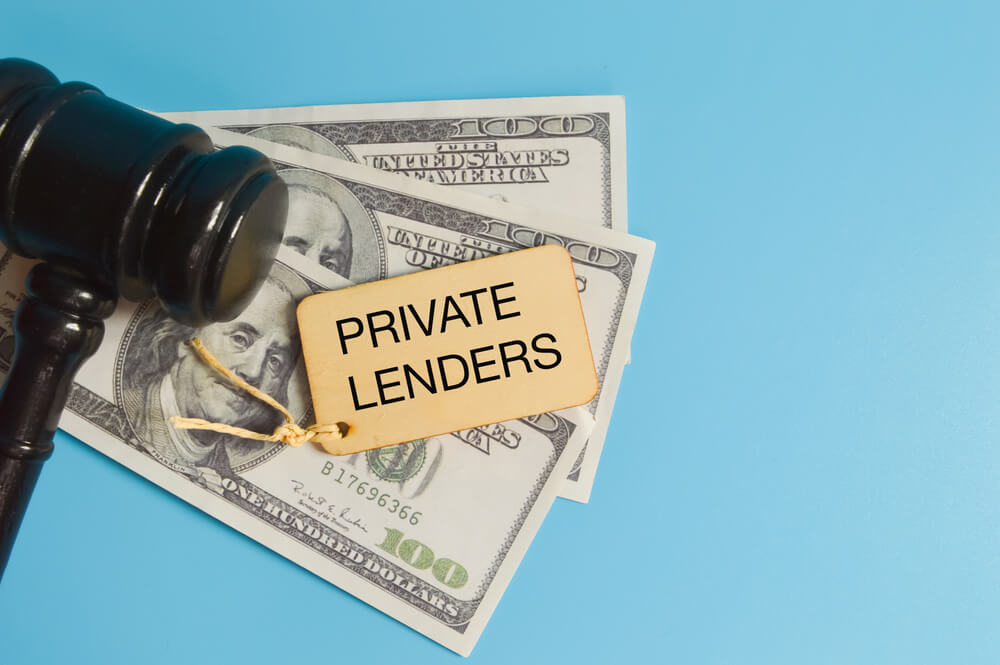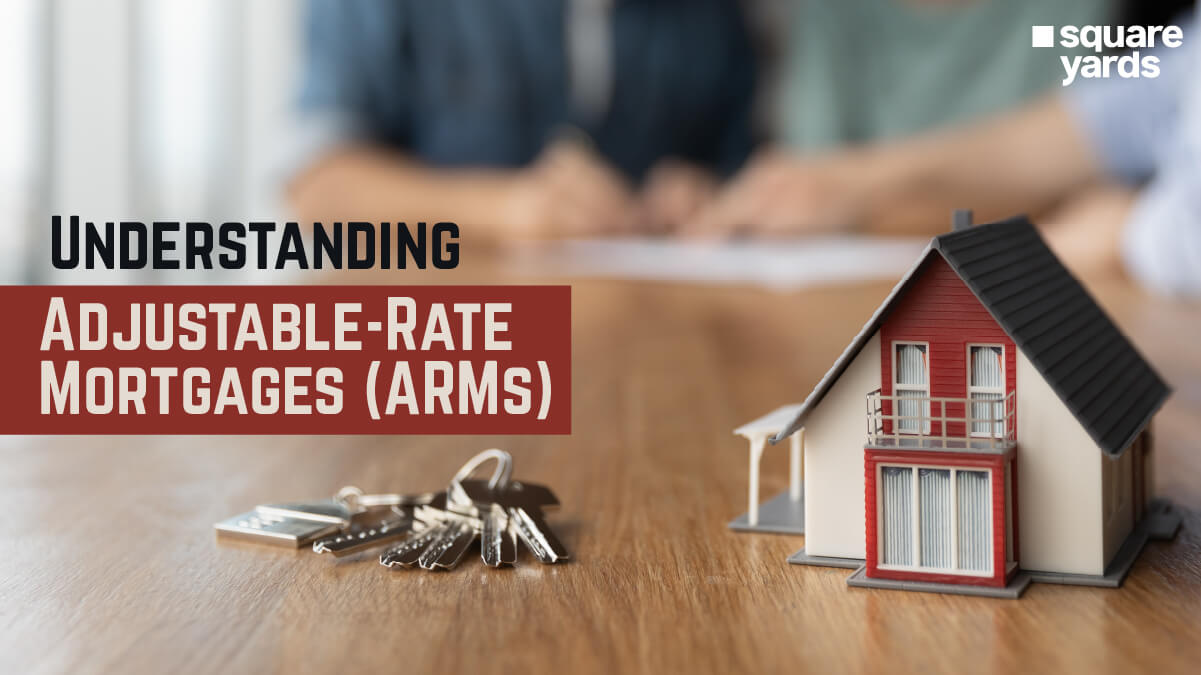Private loaning institutions have existed for a long time and have become an increasingly dependable option for people, especially with the declining economy. Even today, these institutions, such as Private mortgage lenders, hard money lenders, exist with some modifications. Private money lenders options have emerged as an effective alternative to traditional loaning institutions, such as banks and credit unions. The fact that private institutions are not under the control of the government in any way makes them a desirable option for many. But at the same time, they also possess risks if not carefully chosen. Let’s explore some of these options and the criteria required for them!
Private Mortgage Lender

A private mortgage lender deals with lending funds on interest for real estate purposes to a borrower. The private lender is a separate entity, not bound to follow the governmental guidelines for borrowing loans. They do not follow federal regulations but usually have to register with the state authority. The lender has their criteria and regulations for lending loans and their own rules for the verification process.
-
Benefits of Private Mortgage Lenders
The rate of interest that the private mortgage lenders charge is quite a bit higher – ranging around 20% annually. But even then, it’s a good deal! Let’s find out why:
-
- Quicker Approval : When taking a loan from a private mortgage lender, your entire transaction process might take up to only 7 or 10 days. You will have a loan in your hands relatively fast. They take little time to approve your loan, as the approval depends more on the mortgaging property than anything else. The process sometimes might take only 24 hours.
- Simple Application Affair : For private mortgaging, your financial situation holds no weight in deciding your loan approval. Your mortgaging property generates enough income to cover your loan if you forfeit.
- Low Credit Score : Private mortgage lenders are preferable if you have a low credit score. The main concern of private lenders lies with the assessed value of the property, which should give them a good deal. The credit score plays a minor role when borrowing through private options.
-
Drawbacks of Private Mortgage Lenders
- Requires Valuable Property : You need to ensure that your mortgaging property has a high value, and it must generate enough income to accommodate the interest of the loan. You will be considered for the loan if your property meets this requirement.
- Short Payment Period : Private mortgage lenders require the repayment of the loan within a short period, usually six to twelve months.
- High-interest rates : Private mortgaging has more risk of forfeiting payment, so the interest rates are higher than normal.
-
Who Private Mortgage Lenders Help?

Following are the categories of people who might find private mortgage lenders of use:
-
- Self-employed people.
- New immigrants with foreign credit and limited Canadian employment Law history.
- People who possess only some of the necessary documents or have bad credit, no credit history, or low credit.
- People with foreign income.
- Property investors looking to flip properties in poor condition with new properties could get a better deal with private lenders.
-
Funding Criteria
The following are the factors that must be met for a loan from private mortgage lenders:
-
- First and foremost, the lenders evaluate the Loan-to-Value ratio (LTV) –
- 50% on empty and undeveloped properties
- 65% on commercial buildings
- 70% on apartment complexes.
- Quick selling ability of the building in case the borrower forfeits the loan.
- Cash potential of the collateral or the ability of the borrower to meet the monthly payment schedule.
- Borrower’s payment strategy.
- First and foremost, the lenders evaluate the Loan-to-Value ratio (LTV) –
Private Money Lender

Private institutions warrant private money loans to an individual or company. This warranting institution is known as a private money lender. The lenders decide the criteria to lend the money to the borrower. Private money lenders evaluate the income potential of the new or repaired property and determine the amount of the loan based on this evaluation.
The borrower and lender sign a promissory note that explicitly mentions the loan amount, rate of interest, repayment term, and other regulations and terms of the loan. The private money lender also has the right to possess the property if the borrower fails to pay the loan.
-
Benefits of Private Money Lenders
- Recommended for new investors : Real estate investors, who are new in this industry and want to start with small investment properties, could approach private money lenders to support them in the new venture. Due to a lack of credibility and experience, traditional loaning institutions, like banks, are hesitant to lend money to newbies. This is because it believes they will likely fail to repay the loan. But private lenders, though they charge high interest rates, provide loans to start-ups and, in some cases, advise the investors.
- Speed : The loans granted by private institutions are approved quickly in comparison to the rigorous approval process of traditional institutions. This allows you to stay with others and in the game.
- Insufficient credit : If you have bad credit or your credits do not qualify with the requirements of the traditional structures, getting a loan is difficult. This is not the case with private money lending. Private money lenders are not concerned with your credit score. They examine the property and approve the loan based on that.
-
Drawbacks of Private Money Lending
- High-Interest Rates : Private lenders charge around 15% interest, even 20% if the borrower has a poor credit score or the property involves some risk. Lenders also add points to the interest rate, raising it even more.
- Repayment Time : Private money lending does not allow you a repayment time of 30 years like the banks. The repayment term is way too less, usually six months or a year or rarely a few years.
-
Who Private Money Lenders Help?

Private money lenders help with the following :
-
- Rehab Sellers or Rehab Renters : Investors who purchase residential property in poor conditions and renovate it to resell or rent the property look for private lenders. The lenders usually lend loans to these investors if they feel the value of the renovated property will be high.
- Builders or Developers : Builders or developers who purchase vacant land mortgage to develop residential or commercial property. These investors look for speedy funds, which can be availed through private money lenders.
- Commercial Investors : These types of investors need private money as a bridge loan.
-
Funding Criteria
While deciding whom to lend money to, private money lenders consider the following:
-
- The borrower’s loaning and payment clearance history.
- Borrower’s loan settlement plan.
Hard Money Lender

If the application for a loan gets declined by traditional institutions, a hard money loan is still an option for the borrowers. A hard money loan is a non-conforming loan, i.e.; it does not have to follow government regulations. The loan is usually sanctioned for commercial or investment properties with an asset or property as collateral.
Hard money lenders are investors or companies that operate privately. Without a strong credit score, you can avail of the loan through hard money lending as they assess the monetary value of the asset or property against which the loan is being taken. Hard money is a fast loan option, but the repayment period is less than one or three years. The rate of interest sought is comparatively higher than government-regulated institutions.
-
Benefits of Hard Money Lenders
- Safe Option : If you are involved in the real estate industry and deal with fix-and-flip investments, hard money might be beneficial. Hard money lenders are semi-institutional, licensed, and better organised than private lenders.
- Speed : The approval of hard money loans is relatively faster than traditional banking loans. Within 3-5 days, you have the loan in your hands, sometimes even within 24 hours.
- Credit Score Irrelevant : The lenders consider the property mortgaged, the down payment, and the exit or payment strategy of the borrower. If all these requirements raise no red flags for the lender, they grant the loan. Your credit history plays no role in the loan approval.
-
Drawbacks of Hard Money Lenders
- Subject to Regulations : One of the cons of hard money lenders is that they are more regulated than private money and mortgage lenders. However, they are less regulated than banking institutions.
- High Interest Rates : Since the lender is undertaking more risk than the borrower when lending the loan, the interest rates are comparatively higher than the standard interest rates.
-
Whom Do Hard Money Lenders Help?
Following are a few investors that hard money lenders help:
-
- Professional Flippers : This kind of loan is mostly availed by fix-and-flip investors. These investors buy a potential property in poor condition at a low price. They invest in reparations and renovating these properties to increase their monetary value. After the successful completion of repairs, the property is sold at a high profit. These flippers constantly buy and sell properties and, thus, do not have the time to wait for months for the approval of the loan by banks. Hence, they approach hard money lenders, who provide them with cash within a few days.
-
- Rental Investors : People interested in or working as rental property investors but do not meet all the requirements of the banks and credit unions opt for hard money lending.
- Commercial Property Buyers : Business people looking for commercial property on an urgent basis find hard money lending option better than traditional ways. They can avail a large amount of money faster to close a deal.
-
Funding Criteria
- They require a down payment as a security.
- The property mortgaged as a down payment must yield high money.
- The borrower would receive 65%-75% of the property value as a loan.
Private Mortgage vs Private Money vs Hard Money Lenders

Though similar on most grounds, the three lenders have different lending criteria:
- Lending Criteria : A private mortgage lender does not advance loans to rehabilitate a property like a private money lender. Mortgage lenders are only concerned with high-yielding property. On the contrary, the hard money lender deals mostly with fix-and-flip investors, to which neither of the other two lenders gives out loans.
- Regulations : Private money lenders are not usually organised to the scale of hard money lenders. Private money lenders do not need a license, but hard money lenders should be licensed.
Wrapping Up
There might be times when you require a loan, but you might need the means to secure one through a traditional bank. Hence, this is when private lending institutions step in. When you urgently need to buy a property in Canada, you can opt for private mortgage lenders. Private money lenders are a good choice for builders and developers who purchase and sell property daily. At the same time, hard money lenders are suitable for people in real estate involved in the fix-and-flip business. When choosing between the three, evaluate your requirements and make an informed decision.
You May Also Read :
| reverse mortgage loan | 6 Best reverse mortgage Alternatives |
| real estate mortgage process | Guide To real estate mortgage process |
| Reverse Mortgage Scam | Overview of Reverse Mortgage Scam |
| mortgage stress test in Canada | Know About mortgage stress test in Canada |
| reverse mortgage in Canada | Understand How reverse mortgage Works in Canada |
| Assumable Mortgage | All About Assumable Mortgage |
Frequently Asked Question (FAQs)
How can private mortgage lenders lend special mortgages?
Private mortgage lenders usually lend special mortgages by providing quick loans to family, friends, acquaintances or people who come to them for help.
Do private mortgage lenders let you borrow more?
Yes, private mortgage lenders allow you to borrow more. Thus, you have to invest fewer funds of your own.
How long does it take to get a private mortgage?
A private mortgage is usually sanctioned within ten days.
Should I stay with a private mortgage lender?
In many cases, private mortgage lenders are family members and friends or someone in personal relationships. Hence, you might be staying with your lender.
What happens to my mortgage if the private lender goes bankrupt?
Even when your lender goes bankrupt, you are still liable to pay the money owed. It would simply go to the other company.
What is the difference between Private Mortgage Rates and Lender Fees?
Private mortgage rates are the interest charged on the principal loan amount that the mortgaged property can sufficiently pay off. Lender fees are the small percentage that the lender charges for its service.











